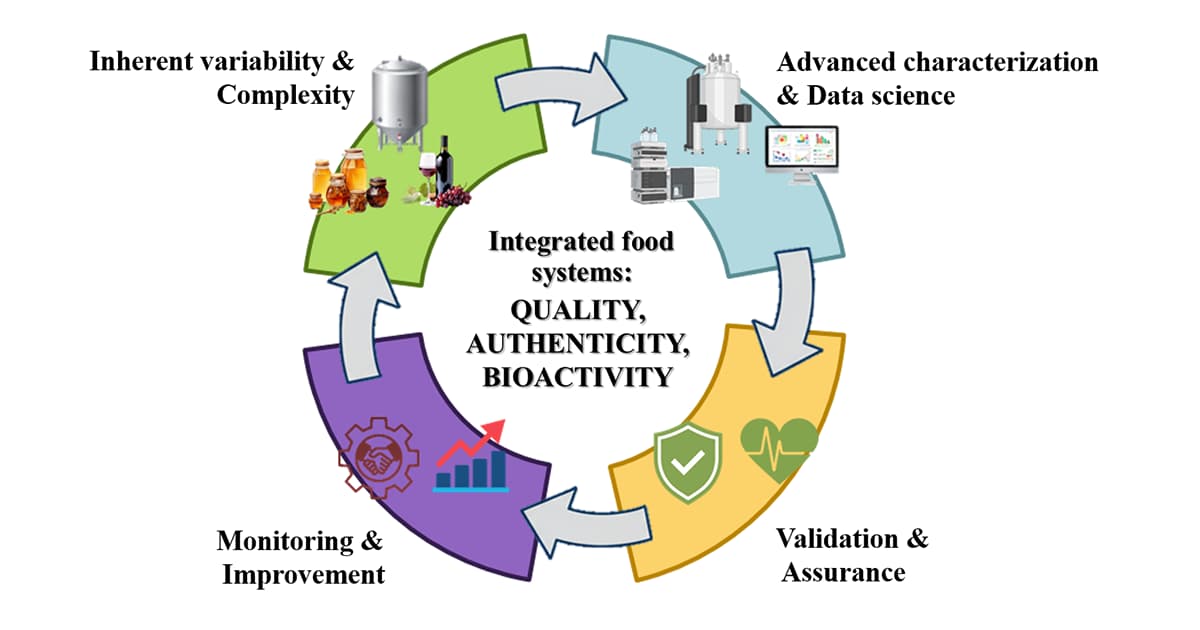Chemistry, Bioactivity and Authenticity of Sugar-Rich and Fermented Foods and Beverages
A special issue of Molecules (ISSN 1420-3049). This special issue belongs to the section "Food Chemistry".
Deadline for manuscript submissions: 20 July 2026 | Viewed by 74

Special Issue Editors
Interests: NMR metabolomics; chemometrics; carbohydrates; honey; wine; beer; food chemistry
Special Issue Information
Dear Colleagues,
Sugar-rich foods and beverages are significant to the economy and nutrition, so ensuring their quality and authenticity is important. Non-fermented sugar-rich products, like honey, jams, and fruit juices, are valued for their natural sweetness and bioactive compounds. Fermented beverages, such as wine, beer, mead, and kombucha, use sugars as substrates for microbial transformations that significantly impact their chemical composition, flavor, stability, and functional properties. The quality, authenticity, and health attributes of these products depend on the raw materials used and the conditions of fermentation, processing, storage, and geographical origin.
This Special Issue focuses on the chemical characterization, bioactivity, and authenticity of sugar-rich and fermented foods and beverages. We invite studies that use analytical techniques, such as spectroscopy, chromatography, and mass spectrometry, for accurate chemical profiling and quality control. We encourage submissions that examine the functional properties of these foods, including prebiotic, antioxidant, antimicrobial, and anti-inflammatory activities. We welcome manuscripts concerning authenticity, fraud detection, and processing effects. Studies on healthier, more innovative products are welcome.
This Special Issue combines insights from chemistry, biology, and technology to offer a comprehensive, data-driven viewpoint on sugar-rich and fermented goods. This approach fosters innovation and supports consumer health in the evolving food and beverage sector.
Prof. Dr. Svetlana Simova
Guest Editor
Dr. Dessislava Gerginova
Guest Editor Assistant
Manuscript Submission Information
Manuscripts should be submitted online at www.mdpi.com by registering and logging in to this website. Once you are registered, click here to go to the submission form. Manuscripts can be submitted until the deadline. All submissions that pass pre-check are peer-reviewed. Accepted papers will be published continuously in the journal (as soon as accepted) and will be listed together on the special issue website. Research articles, review articles as well as short communications are invited. For planned papers, a title and short abstract (about 250 words) can be sent to the Editorial Office for assessment.
Submitted manuscripts should not have been published previously, nor be under consideration for publication elsewhere (except conference proceedings papers). All manuscripts are thoroughly refereed through a single-blind peer-review process. A guide for authors and other relevant information for submission of manuscripts is available on the Instructions for Authors page. Molecules is an international peer-reviewed open access semimonthly journal published by MDPI.
Please visit the Instructions for Authors page before submitting a manuscript. The Article Processing Charge (APC) for publication in this open access journal is 2700 CHF (Swiss Francs). Submitted papers should be well formatted and use good English. Authors may use MDPI's English editing service prior to publication or during author revisions.
Keywords
- sugar-rich foods
- fermented beverages
- chemical characterization
- analytical techniques
- bioactive compounds
- metabolomics
- authenticity
- food control
Benefits of Publishing in a Special Issue
- Ease of navigation: Grouping papers by topic helps scholars navigate broad scope journals more efficiently.
- Greater discoverability: Special Issues support the reach and impact of scientific research. Articles in Special Issues are more discoverable and cited more frequently.
- Expansion of research network: Special Issues facilitate connections among authors, fostering scientific collaborations.
- External promotion: Articles in Special Issues are often promoted through the journal's social media, increasing their visibility.
- Reprint: MDPI Books provides the opportunity to republish successful Special Issues in book format, both online and in print.
Further information on MDPI's Special Issue policies can be found here.







